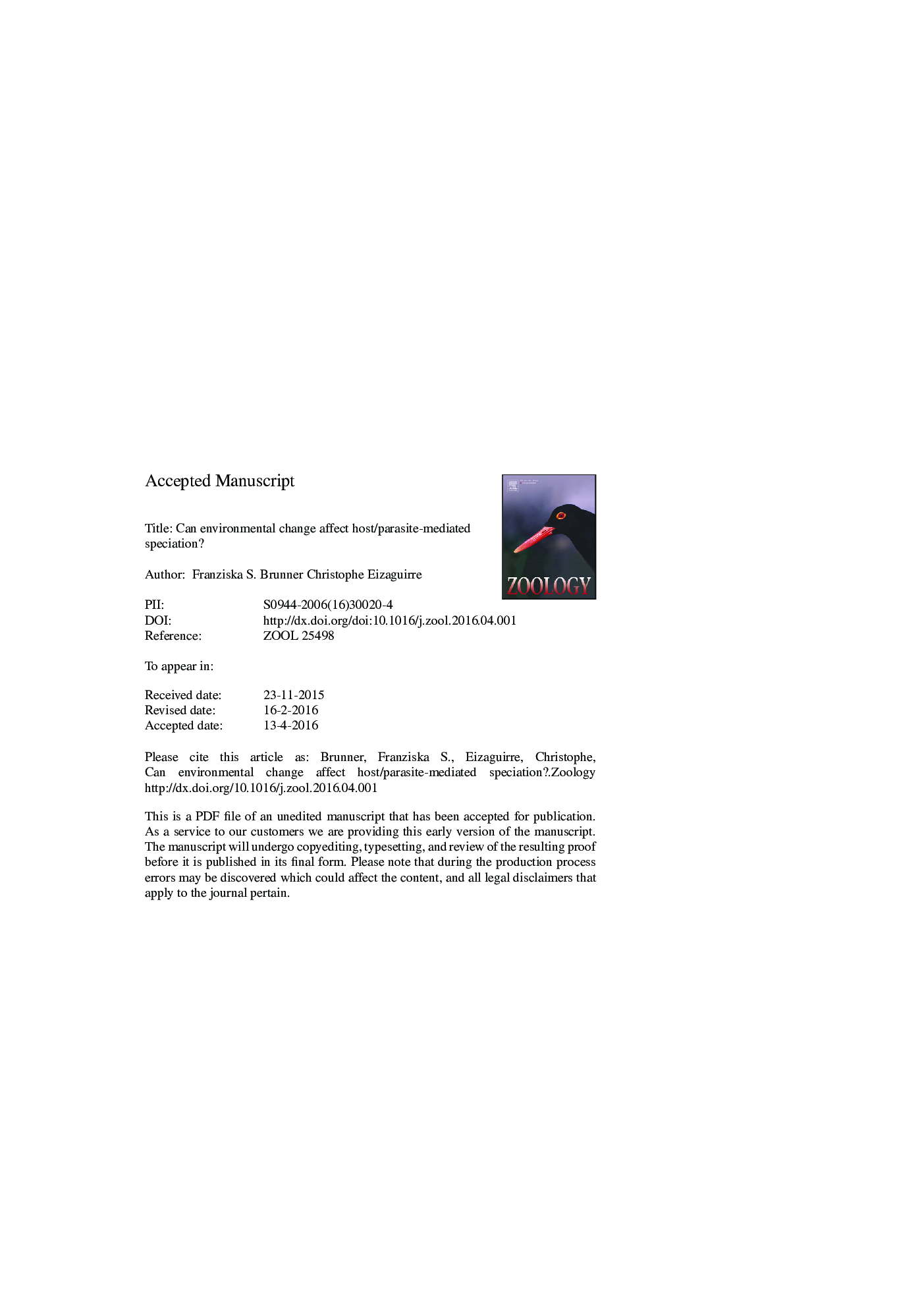| Article ID | Journal | Published Year | Pages | File Type |
|---|---|---|---|---|
| 5586617 | Zoology | 2016 | 38 Pages |
Abstract
Parasitism can be a driver of species divergence and thereby significantly alter species formation processes. While we still need to better understand how parasite-mediated speciation functions, it is even less clear how this process is affected by environmental change. Both rapid and gradual changes of the environment can modify host immune responses, parasite virulence and the specificity of their interactions. They will thereby change host-parasite evolutionary trajectories and the potential for speciation in both hosts and parasites. Here, we summarise mechanisms of host-parasite interactions affecting speciation and subsequently consider their susceptibility to environmental changes. We mainly focus on the effects of temperature change and nutrient input to ecosystems as they are major environmental stressors. There is evidence for both disruptive and accelerating effects of those pressures on speciation that seem to be context-dependent. A prerequisite for parasite-driven host speciation is that parasites significantly alter the host's Darwinian fitness. This can rapidly lead to divergent selection and genetic adaptation; however, it is likely preceded by more short-term plastic and transgenerational effects. Here, we also consider how these first responses and their susceptibility to environmental changes could lead to alterations of the species formation process and may provide alternative pathways to speciation.
Related Topics
Life Sciences
Agricultural and Biological Sciences
Animal Science and Zoology
Authors
Franziska S. Brunner, Christophe Eizaguirre,
